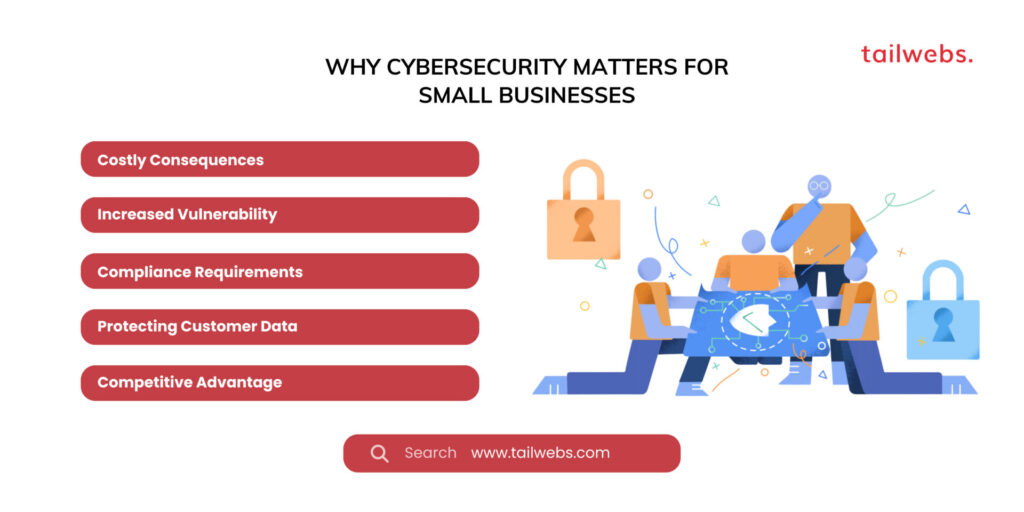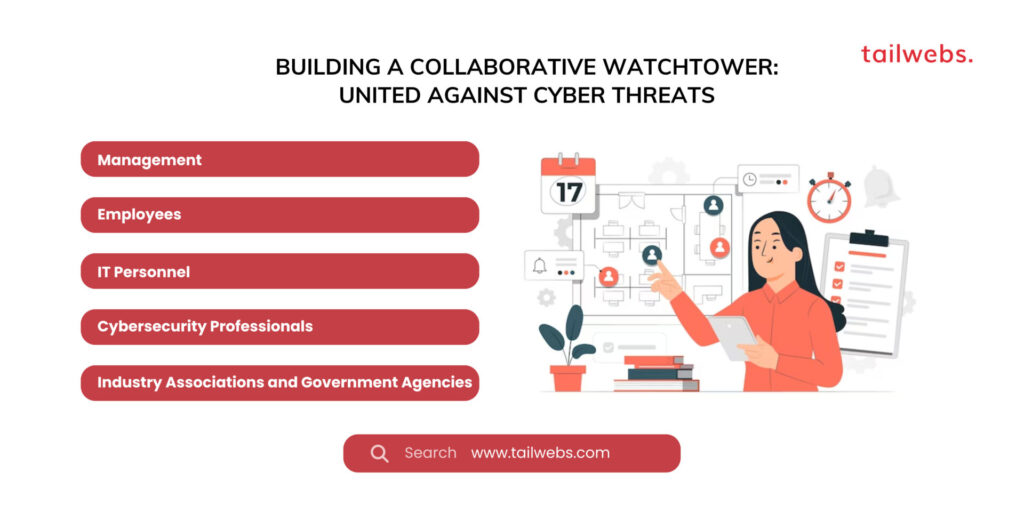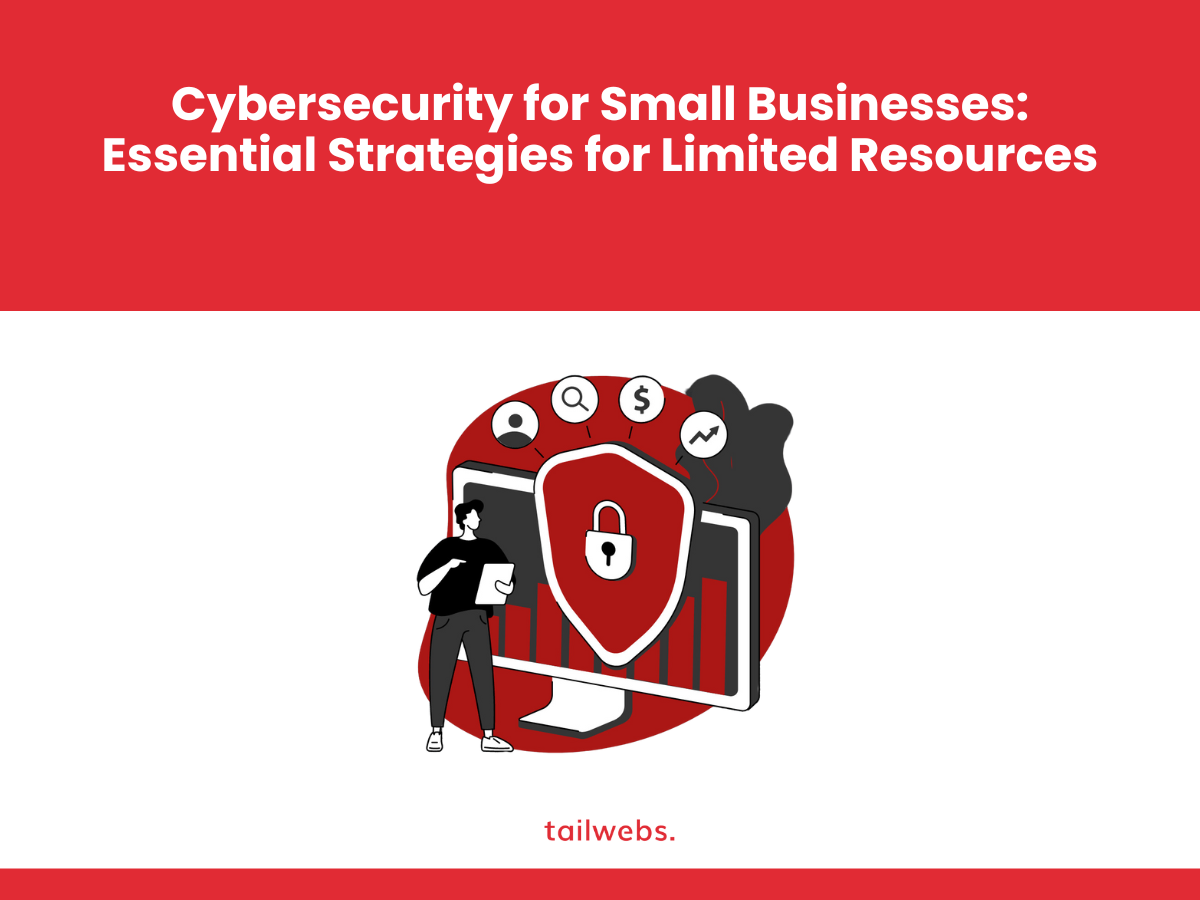Conquering the Cybersecurity Beast: Essential Strategies for Small Businesses with Limited Resources
The digital landscape presents a treasure trove of opportunities for small businesses, but lurking within its shadows lie cyber threats that can cripple even the most well-intentioned operation. While larger companies might have dedicated security teams and hefty budgets, smaller businesses often find themselves strapped for resources when it comes to cybersecurity. Fear not, brave entrepreneurs! Armed with knowledge and actionable strategies, even resource-constrained businesses can build formidable defenses against cyberattacks.
Why Cybersecurity Matters for Small Businesses:
Costly Consequences:
Data breaches can cost small businesses an average of $43,000, impacting their finances, reputation, and customer trust. (Accenture, 2023 Cost of Cybercrime Report)
Increased Vulnerability:
Smaller businesses often lack the sophisticated security measures present in larger organizations, making them prime targets for opportunistic attacks.
Compliance Requirements:
Many data privacy regulations apply to small businesses as well, making compliance essential for avoiding hefty fines.
Protecting Customer Data:
Safeguarding customer information is not only a legal responsibility but also builds trust and loyalty.
Competitive Advantage:
Demonstrating strong cybersecurity practices can attract customers and partners who value data security.

Stats Highlighting the Need for Vigilance:
- 68% of organizations experienced a cyberattack in the past year. (Accenture, 2023 Cybersecurity Report)
- 43% of data breaches involve human error. (Verizon, 2023 Data Breach Investigations Report)
- Only 38% of small businesses consider themselves fully prepared for future cyberattacks. (EY Global Information Security Survey 2023)
Building Your Security Shield: Essential Strategies for Limited Resources
Prioritize the Essentials:
Focus on securing the most critical assets, such as customer data, financial information, and intellectual property.
Human Factor Defense:
Implement security awareness training for all employees to identify phishing scams and safeguard sensitive information.
Password Management:
Enforce strong password policies, utilize multi-factor authentication, and avoid password reuse.
Software Updates:
Regularly update operating systems, applications, and firmware to patch known vulnerabilities.
Data Backups and Recovery:
Conduct regular backups of essential data and have a robust recovery plan in place.
Free and Open-Source Security Tools:
Leverage free security tools like Google Search Console for website security monitoring and Open-Source Vulnerability Scanners (OSVS) for identifying software vulnerabilities.
Cybersecurity Communities and Resources:
Utilize online communities, government resources, and non-profit organizations offering free cybersecurity guidance and support.
Recommended Tools and Resources:
Free Security Awareness Training Platforms:
SANS Institute offers free security awareness training modules for employees.
Open-Source Vulnerability Scanners:
OpenVAS and Nessus are popular options for identifying vulnerabilities in your IT infrastructure.
Government Cybersecurity Resources:
The National Institute of Standards and Technology (NIST) Cybersecurity Framework provides valuable guidance and resources for small businesses.
Non-Profit Cybersecurity Organizations:
The National Cyber Security Alliance (NCSA) offers educational resources and tools for small businesses.
Free Password Managers:
Bitwarden and KeePass offer robust password management features for individuals and teams.

Challenges Guarding Your Digital Fort:
Limited Expertise:
Finding and retaining cybersecurity professionals can be challenging for small businesses with limited budgets.
Budget Constraints:
Implementing advanced security solutions can be expensive, demanding careful budgeting and prioritization.
Knowledge Gap:
Staying updated on evolving cyber threats and best practices requires continuous learning and awareness.
Competing Priorities:
Balancing cybersecurity with other business needs can be difficult, especially for growing businesses.
Juggling Multiple Roles:
Small business owners often wear multiple hats, making it challenging to dedicate time and resources to cybersecurity.
Building a Collaborative Watchtower: United Against Cyber Threats
Conquering these challenges requires a united front:
Management:
Champion cybersecurity as a priority, allocate resources for training and tools, and foster a culture of security awareness.
Employees:
Actively participate in security training, follow security policies, and report suspicious activity.
IT Personnel:
Implement essential security measures, monitor for threats, and stay updated on emerging cyber threats.
Cybersecurity Professionals:
Utilize freelance professionals or consultants for specific expertise when needed.
Industry Associations and Government Agencies:
Participate in industry groups and leverage government resources for guidance and support.

By working together and harnessing the power of collaboration, you can build a resilient cybersecurity posture even with limited resources.
Here are some additional tips to ensure your collaborative efforts shine brightly in the face of ever-evolving threats:
Conduct Regular Security Assessments:
Utilize free or low-cost vulnerability scanning tools to identify and address security weaknesses.
Stay Informed:
Subscribe to cybersecurity newsletters, follow industry experts online, and participate in webinars to stay updated on emerging threats and best practices.
Practice Continuous Improvement:
Regularly review and update your cybersecurity strategy, policies, and procedures to adapt to evolving threats and regulations.
Share Knowledge and Lessons Learned:
Collaborate with other small businesses and share insights to collectively enhance cybersecurity knowledge and resilience.
Partner with Managed Security Service Providers (MSSPs):
Consider partnering with MSSPs who offer affordable security monitoring and incident response services.
Embrace a Security-First Mindset:
Integrate security considerations into all business decisions, from technology adoption to vendor selection.
Remember, cybersecurity is not a one-time project; it’s an ongoing journey of vigilance, collaboration, and continuous improvement. By equipping yourself with the knowledge, tools, and collaborative spirit, even a small business with limited resources can navigate the digital landscape with confidence, ensuring your valuable data and operations remain secure. So, embark on this noble quest for cybersecurity, join forces with your team and stakeholders, and together, build a future where small businesses thrive in a secure and resilient digital world.




